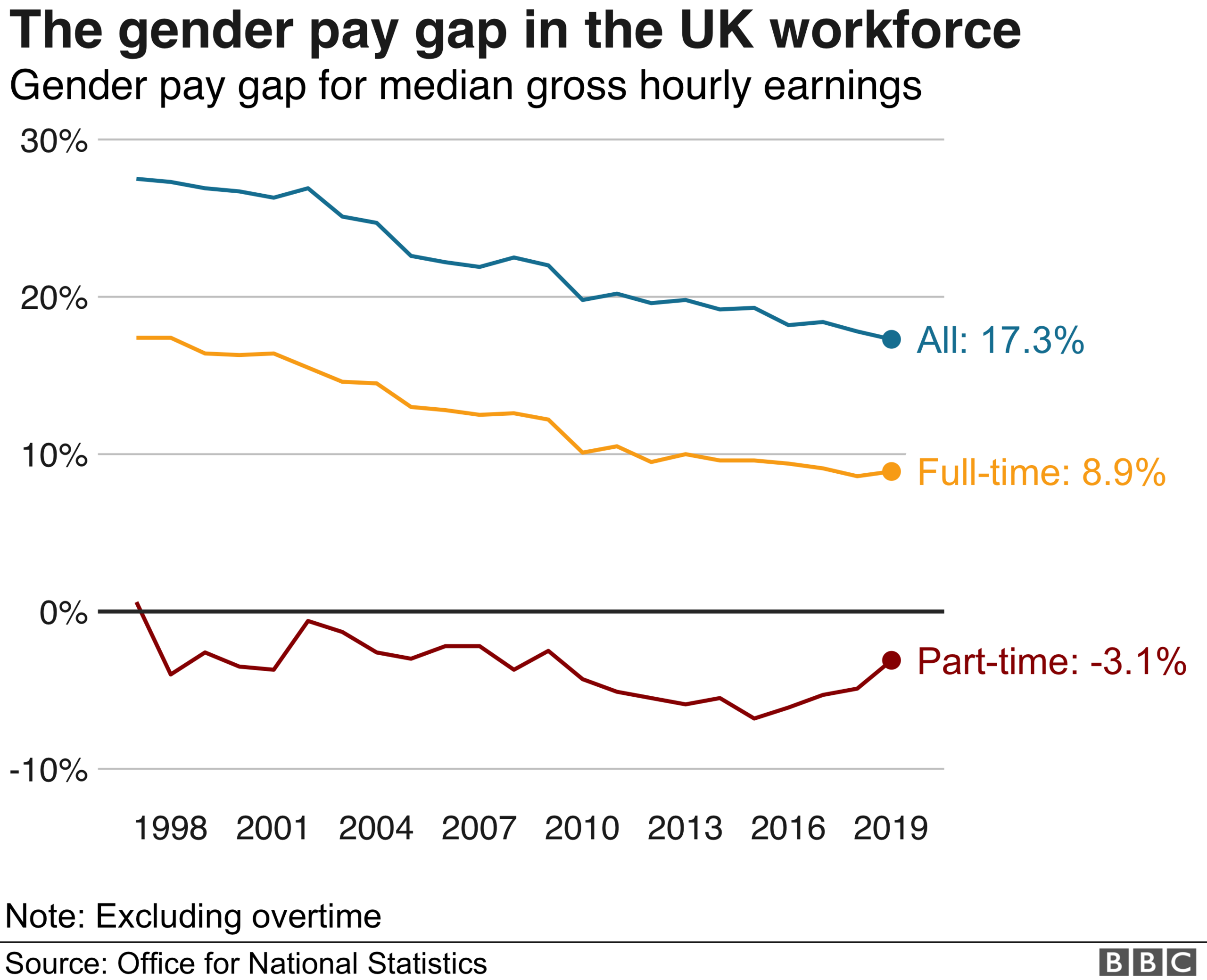MPs call for wider gender pay gap reporting
- Published

Businesses with 100 employees or more should publish their gender pay gap data, according to a group of MPs.
Labour's Stella Creasy led the call for changes to the threshold as she presented a bill to Parliament.
Her proposed law would also introduce mandatory ethnicity pay reporting and allow women to ask to see data if they suspect a disparity.
Ms Creasy said it was time to end the "culture of discrimination and the culture of secrecy that causes it".
The Equal Pay Implementation and Claims Bill (EPIC) 2020 has cross-party backing, its supporters including the Tory chair of the Women and Equalities Committee, Caroline Nokes; the Liberal Democrats' Christine Jardine; the SNP's Anne McLaughlin and the Green Party's Caroline Lucas.
But it is unlikely to become law unless it is supported by the government.
The gender pay gap is the difference between the average earnings of men and women.
From 2017, any organisation with 250 or more employees had to publish specific figures about their gender pay gap on their website, and report the data to the government.
Employers that fail to report on time or report inaccurate data are be in breach of the regulations and risk court orders and fines.

The annual April deadline was suspended this year due to coronavirus - but it is unclear when enforcement will be reintroduced, with a decision expected to be taken closer to the 2021 deadline.
Figures from the Office for National Statistics (ONS) showed in the year to April 2019, the gender pay gap for full-time workers rose to 8.9%
But for people under 40, the gap for full-time employees was close to zero.

In the proposal, Ms Creasy and her supporters are calling for a number of new measures to be introduced alongside the rise in the threshold.
They include:
Allowing women to request pay data relating to a male colleague if they suspect there is a gap
Require mandatory plans of action to fix any gap
Ending time limits on women being able to claim back pay
Giving women back pension rights lost because of pay discrimination
Giving damages for the emotional harm suffered as a result of discrimination
Ensuring current rules that protect women's equal pay rights after Brexit
The Labour MP said nine out of 10 women in the UK were working for firms where women were, on average, paid less then men.
She said ending "good, old-fashioned discrimination" would be "pro-business", quoting research from the Bank of England suggesting ending the gender pay gap would add £600bn to the UK's economy.
The coronavirus pandemic, she added, was showing why Parliament needed to act, with "more mums being made redundant and furloughed than their male counterparts".
"While women first started asking about equal pay in 1883, they still don't have it. We have started the conversation and now we need action," she said.
"It is better for everyone in society when we go to work with a fair wage."
'Wary'
When the issue of gender pay was discussed in the Commons in 2018, the-then Minister for Women, Tory MP Victoria Atkins, said the government wanted "a foundation of data before considering whether or how to change the current requirements".
She told MPs: "Let us have a couple of years of reporting at the higher level and with big companies, which have human resources departments that can deal with this, with the hope that it trickles down... to smaller employers as well."
The Institute of Directors said greater transparency about gender equality in the workplace was welcome but it had to be balanced against the "burden" increased pay reporting would place on smaller businesses.
"At this difficult time, many small firms will be wary of extra demands on their resources, which may already be stretched to the limit," said Dr Roger Barker, its director of policy and corporate governance.
"While we would encourage smaller companies to publish this data on a voluntary basis if feasible, we are concerned that imposing new obligatory reporting requirements on SMEs would be a step too far at the current juncture."